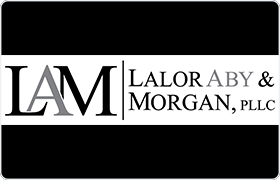Flowood Estate Lawyer, Mississippi
Sponsored Law Firm
-
 x
x

Click For More Info:
-
Lalor Aby & Morgan, PLLC
230 Trace Colony Park Dr. Suite 4 Ridgeland, MS 39157» view mapEstate Law Get the Legal Support You Need
If you need an experienced litigation attorney, look no further than Lalor Aby & Morgan, PLLC.
800-758-9910
Jeffrey Braden Arnold
✓ VERIFIEDEstate, Business, Tax, Personal Injury, Workers' Compensation
Arnold and Associates, LLC is a Mississippi Law Firm. We are focused on providing you with high quality legal services and being dedicated to your ne... (more)
Tabatha McCall Stern
✓ VERIFIEDEstate, Business, Estate Planning
T. McCall Stern ("McCall") is active in her community and has a passion for serving others. She practices predominately in the areas of estate plannin... (more)
Jon H. Powell
Real Estate, Wills & Probate, Trusts, Estate, Divorce & Family Law
Status: In Good Standing
James L. Kelly
Health Care, Wills, Constitutional Law, Medical Malpractice
Status: In Good Standing Licensed: 38 Years
Leigh Ann Tingle
Real Estate, Lawsuit & Dispute, Estate, Divorce & Family Law
Status: In Good Standing Licensed: 20 Years
Emmy Harper Stone
Land Use & Zoning, Wills, Elder Law, Contract, Business
Status: In Good Standing Licensed: 24 Years
John Kenneth Bramlett
Business, Estate, Real Estate, Wills & Probate
Status: In Good Standing Licensed: 36 Years
John Shirley
Landlord-Tenant, Estate, Divorce & Family Law, Criminal, Insurance
Status: In Good Standing
 Owen Lalor Ridgeland, MS
Owen Lalor Ridgeland, MS


